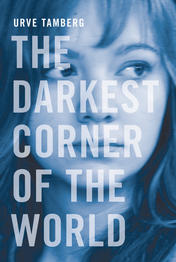People & Places


The seating on the bus is different this year. That's because Raedawn and I and Sherry and Steve crossed the line.

And then we watch helplessly as the jeep burns. Flames leap from the driver's window and lick at the door frame, red tongues reaching into the black smoke. A wall of heat pushes toward us.


We stopped by a simple stone monument.
"What does it say?"
Aviva paused to read the Hebrew. "It commemorates the soldiers who died while taking the hill in the 1948 War of Independence. There was probably a village here."
"What do you mean?"
"Probably some Arab village."
I turned to Aviva. "They planted trees over an Arab village?"
"Sure."
"Why would they do that?"
Aviva shrugged. "To make the land beautiful, I guess."
I stared at her. Then I rubbed my temples. Aviva seemed like a stranger. My head buzzed. I wanted to say, This is not a forest. Instead I said, "What happened to the people who used to live here?"

Tarksalik is about forty feet ahead of me, running by the side of the road. I can tell she's got sled-dog blood in her from the way she runs: head high, legs taut.
The sun has just come up, and when it lands on Tarksalik, it looks like she's shining too. For the first time since I found out I'd be spending this term in Nunavik, in northern Quebec, getting reacquainted with my dad, I don't feel one hundred percent miserable. Right now, as I let the fresh cold air fill my lungs, I'd say I'm down to about eighty-five percent miserable.
Maybe, I think as I watch Tarksalik run, this visit won't turn out to be a total disaster. Maybe there's more to life than Montreal.




